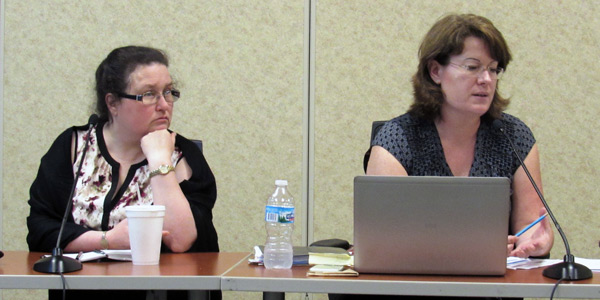By Amanda Durish Cook
CARMEL, Ind. — MISO will schedule a “common issues” meeting in response to a request from a group of stakeholders to better define energy storage, a prelude to the possible formation of a task team dedicated to the issue.
Consumers Energy, DTE Energy, Ameren, Xcel Energy and Indianapolis Power and Light, which all own storage resources, submitted a joint request that MISO create a model for storage’s participation in the market and track its growth using the RTO’s Market Roadmap project list. The companies asked that MISO revise its Tariff, dispatch methodology, capacity constructs and models used to determine interconnection rights to “recognize the physical and operational characteristics of energy storage resources.”
At an April 26 Steering Committee meeting, Chair Tia Elliott said the common issues meeting will be used to gather information before creating an energy storage task team or work group. The meeting date has not been scheduled by MISO’s stakeholder relations team.
The RTO is already under pressure to revise its rules for storage under FERC’s Feb. 1 order in response to a complaint by IPL over compensation for the 20-MW battery at its Harding Street Station. (See MISO Ordered to Change Storage Rules Following IPL Complaint.)
Justin Stewart of MISO’s stakeholder relations unit said the stakeholders’ request was too broad to be covered by a single Market Roadmap assignment, saying it “touches too many market functions.”
Under the stakeholder redesign completed last year, Steering Committee members can assign completed issues submissions forms to other committees, reject considering the issue altogether, assign it as a common issue or send it back for more detailed information.
Aligned with NOPR
DTE’s Nick Griffin, who authored the request, said his proposal aligns with the aims of FERC’s Notice of Proposed Rulemaking on energy storage, issued in November. (See FERC Rule Would Boost Energy Storage, DER.)
“Whether or not FERC mandates this, we feel this will be useful to leverage storage in the MISO market,” Griffin said.
Steering Committee members said the topic could warrant a common issues meeting and then a possible task team. But they said creating storage market definitions was too tall an order for a typical Market Roadmap assignment.
“The topic of energy storage does touch many of the areas under [the main MISO committees]. It may be appropriate for us to consider a task force or a work group … where these issues related to energy storage can be discussed,” Elliott said.
MISO Executive Director of External Affairs Kari Bennett said the RTO was open to creating a stakeholder group to handle energy storage topics as part of a “big picture evaluation.”
“I think there’s a lot of embedded issues in here, and the Market Roadmap typically only handles one issue. … I think that a common issues meeting could be used to tease out all of those individual issues,” Alliant Energy’s Mitchell Myhre said.
MISO Executive Director of Market Design Jeff Bladen said a task team could use its six-month lifespan to come up with a “package of recommendations,” then have the RTO’s committees review their possible responsibilities in creating market definitions for storage. “Because it’s so important, it would be important for stakeholders to get a chance to think through all of those issues in a multifaceted fashion,” Bladen said.
Compliance Filing in IPL Complaint
In March, MISO requested a rehearing of FERC’s order in the IPL complaint, arguing that the storage NOPR is a “near-complete” overlap of the ordered storage revisions (EL17-8). MISO said IPL’s insistence that it participate fully in the market is hollow, as the Harding Street storage only provides primary frequency response.
However, with FERC at a near-standstill from the lack of a quorum, MISO made a compliance filing April 3 in response to the order, proposing the creation of a new resource category, Stored Energy Resource – Type II, that would not be limited to regulating services (ER17-1376). The proposal would require that storage function largely as a demand response resource, except that it would be treated as a regular generation resource for settlements and would not be eligible for revenue sufficiency guarantee payments or day-ahead margin assurance payments.
“We made a compliance filing in the docket, but it doesn’t do justice to the issue,” Bladen said, indicating that a more detailed market model for storage is inevitable.





